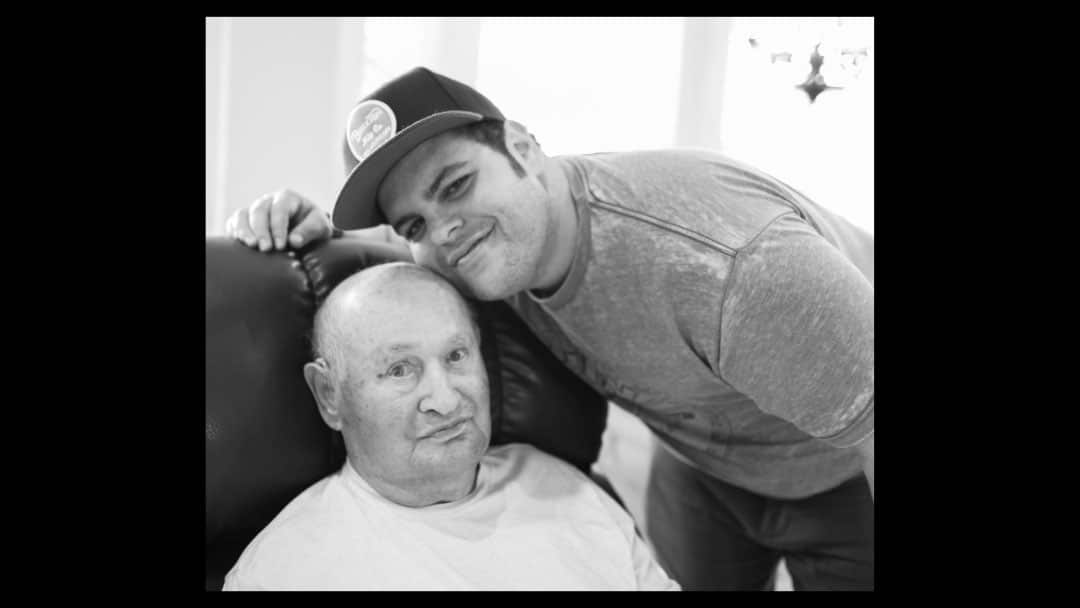
Many know actor Josh Gad as Elder Arnold Cunningham from “The Book of Mormon” a role for which he received a Tony Award nomination and won a Grammy Award for appearing on the original cast recording of the Broadway smash hit. Others recognize him as the voice of Olaf from “Frozen” or the buddy film “The Wedding Ringer,” where he starred opposite Kevin Hart.
Recently, Gad has proven to be among the most vocal Jewish stars in Hollywood to speak up against antisemitism. On Jan. 26, in conjunction with the Los Angeles based nonprofit, If You Heard What I Heard, released a 40-minute video telling the story of his grandfather, Holocaust survivor Joseph Greenblatt.
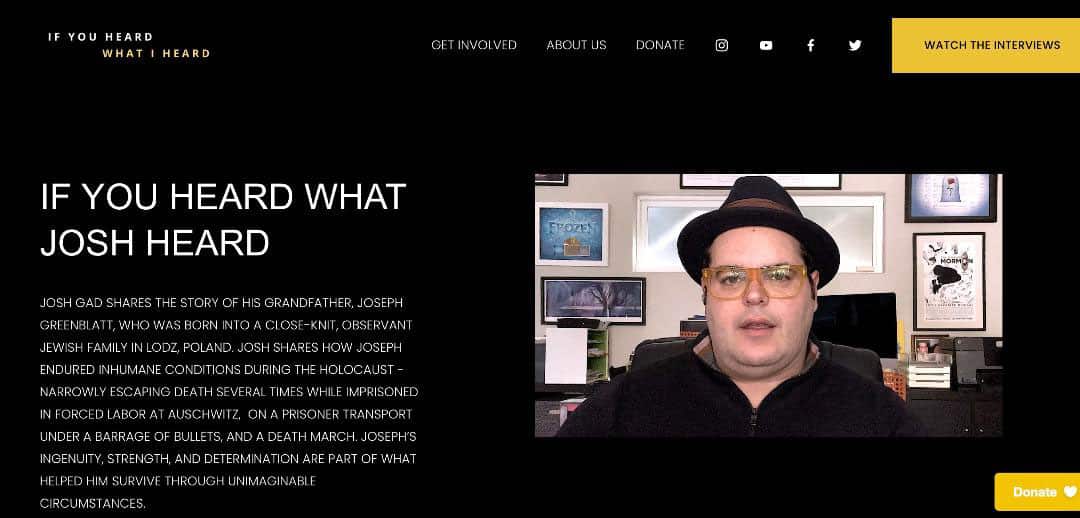
At Auschwitz, Greenblatt didn’t know he was face to face with the man who would later be known as “The Angel of Death,” Josef Mengele, the Nazi whose perverse experiments tortured and murdered Jews. The Nazis would “get their kicks” in winter by putting Jewish workers in the shower and alternate between freezing and boiling water that left welts.
Greenblatt was selected to work, rather than go to the gas chambers, as he was an iron worker and also was a tailor.
Gad decided to tell the story of his maternal grandfather because “the clear and present danger that the rise of antisemitism and white supremacy present right now made the stories that my grandparents shared with me at a very early age more urgent than ever before,” he told the Journal via email.
“The clear and present danger that the rise of antisemitism and white supremacy present right now made the stories that my grandparents shared with me at a very early age more urgent than ever before.” – Josh Gad
In the video, Gad describes how his grandfather lived in Poland and when they would leave the Jewish area and pass by the gentile community to go to a funeral, “more often than not, they were pelted with stones.”
Gad says the family told themselves things would get better.
“It’s very hard to imagine the unimaginable,” Gad says. “It’s very hard to consider the unthinkable…”
Gad says his grandfather later saw pictures of Mengele, he realized it was the man he met and sent him to work while others were slaughtered.
“What humans could do that to other humans?” Gad asks rhetorically.
Greenblatt would later be sent to Buchenwald. He would save the lives of many as bullets flew into the train, from Allied fighter planes who thought they were firing upon the enemy, but Greenblatt did something remarkable that resulted in the pilots ceasing to fire on the train. He later survived a death march.
Greenblatt would eventually marry fellow survivor Evelyn. Most of their relatives were murdered in the Holocaust and when Gad was six, he asked his grandmother why there were numbers on her arm. She explained it to him.
Gad says he is amazed his grandfather maintained his sense of humor.
Why was it so important for Gad to publicly tell this story now?
“The phrase ‘never forget’ was created for this very moment. We are at an inflection point right now and in order to avoid the potential dangers that could otherwise await us in the future, it is imperative to first understand and contextualize the dire lessons of the past.”
Asked if he thinks about what he might have done had he been in his grandfather’s harrowing situation, he is unsure.
“It is painful to think about what I would have had to endure in my grandfather’s shoes,” Gad wrote. “Not only because the stories are so horrific and unthinkable, but because I know that I would not have had even an ounce of his bravery and perseverance. He was instinctively a Survivor through and through. I honestly don’t believe I would have been.”
“It is painful to think about what I would have had to endure in my grandfather’s shoes. Not only because the stories are so horrific and unthinkable, but because I know that I would not have had even an ounce of his bravery and perseverance.” – Josh Gad
Perhaps, in the future, Gad will make a film about his grandfather’s story of survival.
“I very much would like to tell my grandfather’s (full) story one day,” Gad wrote. “I think every story detailing this period offers new observations that if we choose to listen can open our eyes to not only what happened but how and why it happened.”
In the video he says the word “pride” doesn’t do justice to the way he feels about being the grandson of Joseph and Evelyn Greenblatt.
His goal is for people to have an emotional reaction to his video.
“I hope they are touched and moved by my grandfather’s superhero story of survival and perseverance,” Gad wrote. “But perhaps more so than that, I want them to be terrified and scared. Because only when one stops thinking about these as far-away experiences from another time, and looks at them as something that happened to thousands of people who are still alive today, can they possibly begin to comprehend what’s at stake. ‘Never forget’ isn’t a catchphrase. It’s a warning. It is a reminder not of what has happened, but what can all too easily happen again when we refuse to remember the lessons history screams in the shadows.”
If You Heard What I Heard features testimony from grandchildren of Holocaust survivors on its website. The goal is to preserve Holocaust memory through digital storytelling and the video went live on Jan 26, a day before International Holocaust Remembrance Day. In an e-mail to The Journal, Carolyn Siegel, founder of If You Heard What I Heard, explained that “At a time when we’re seeing such a rise in antisemitism, and getting further and further away from the events of the Holocaust, the world is starting to forget. It’s imperative that anyone who is the grandchild of a Holocaust survivor carries the legacy forward to make sure the world will never forget…”
To view the video, click here.







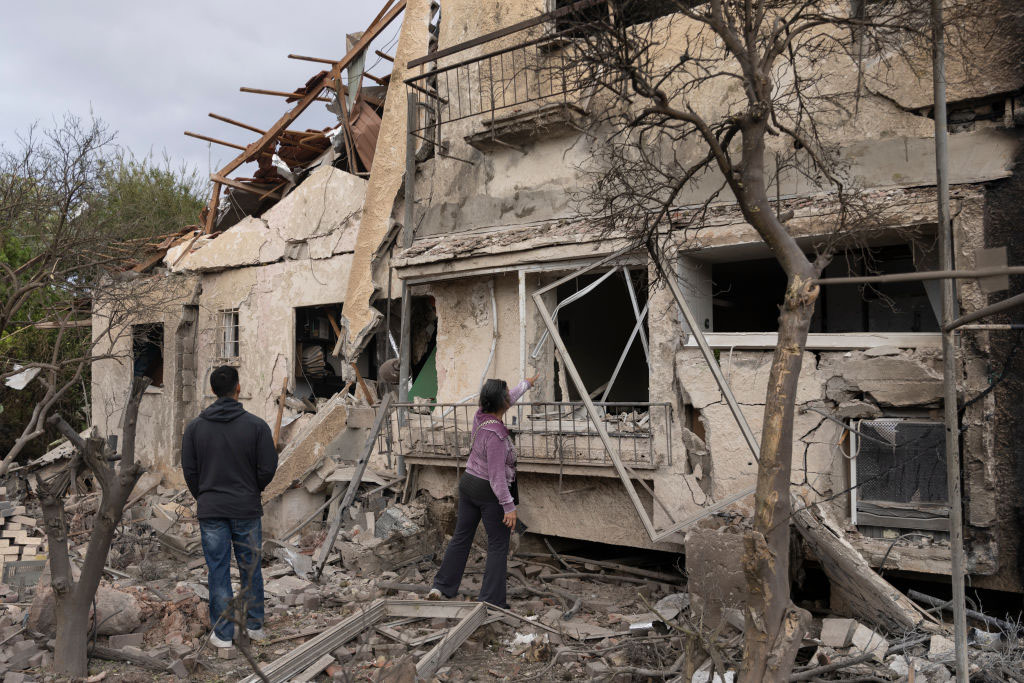
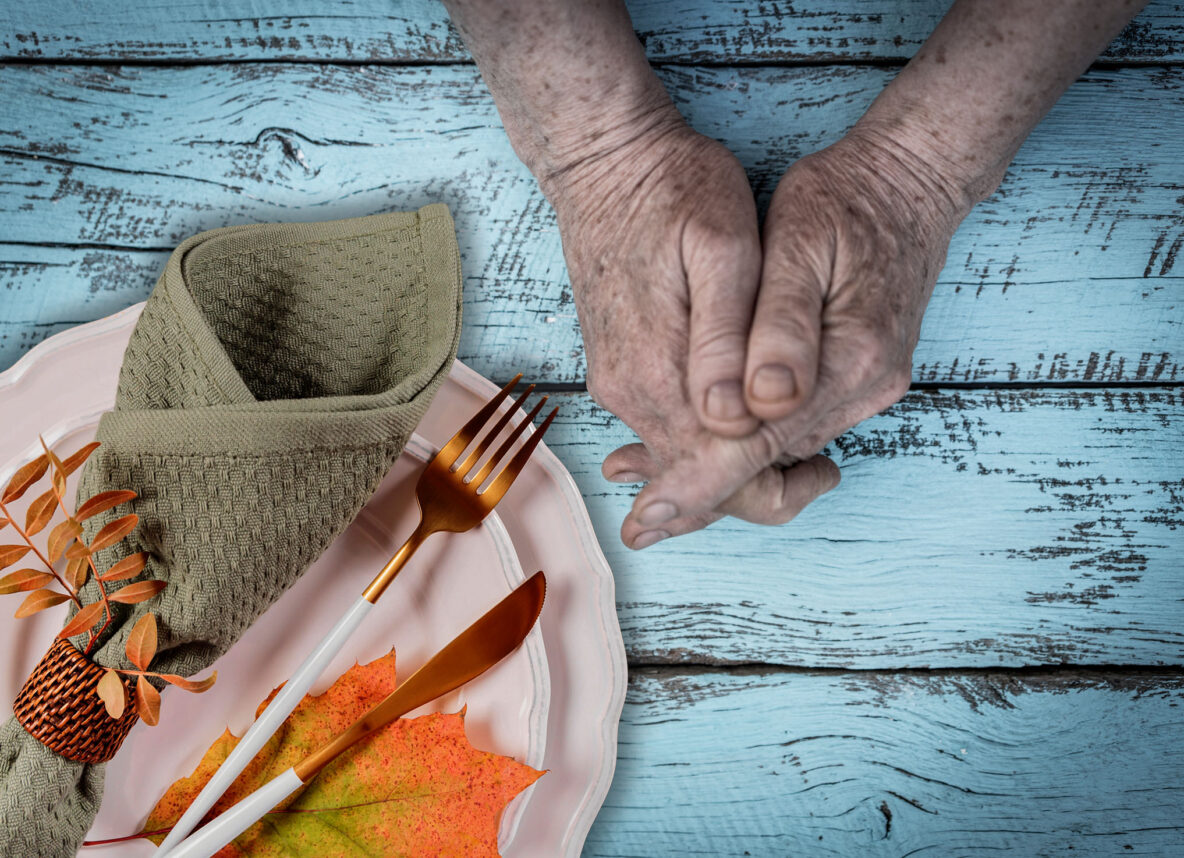
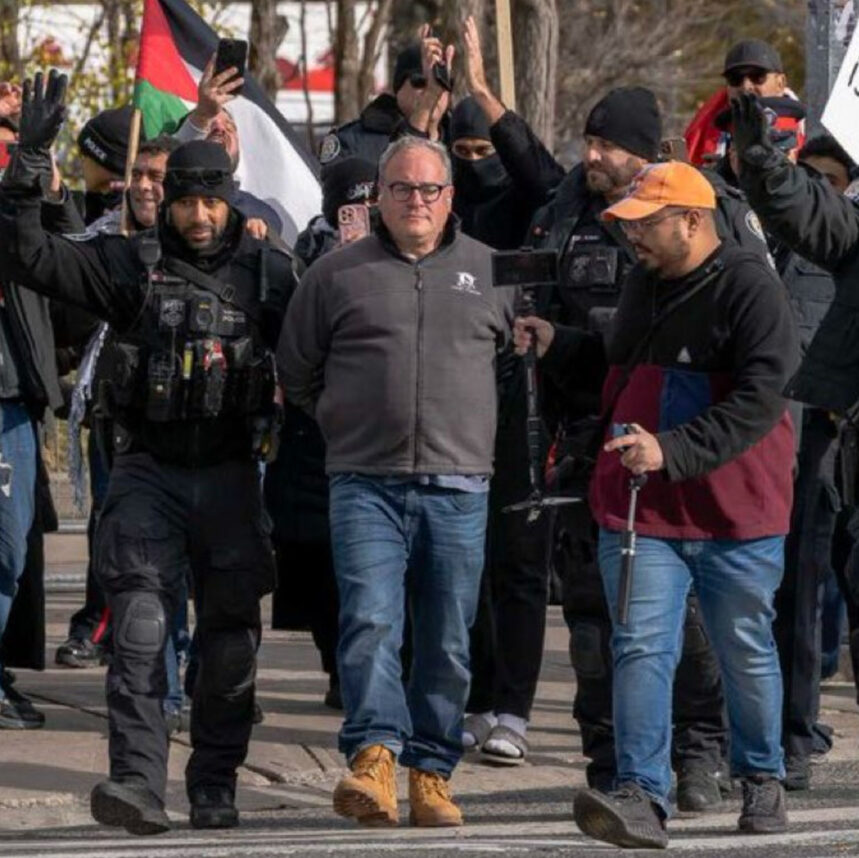
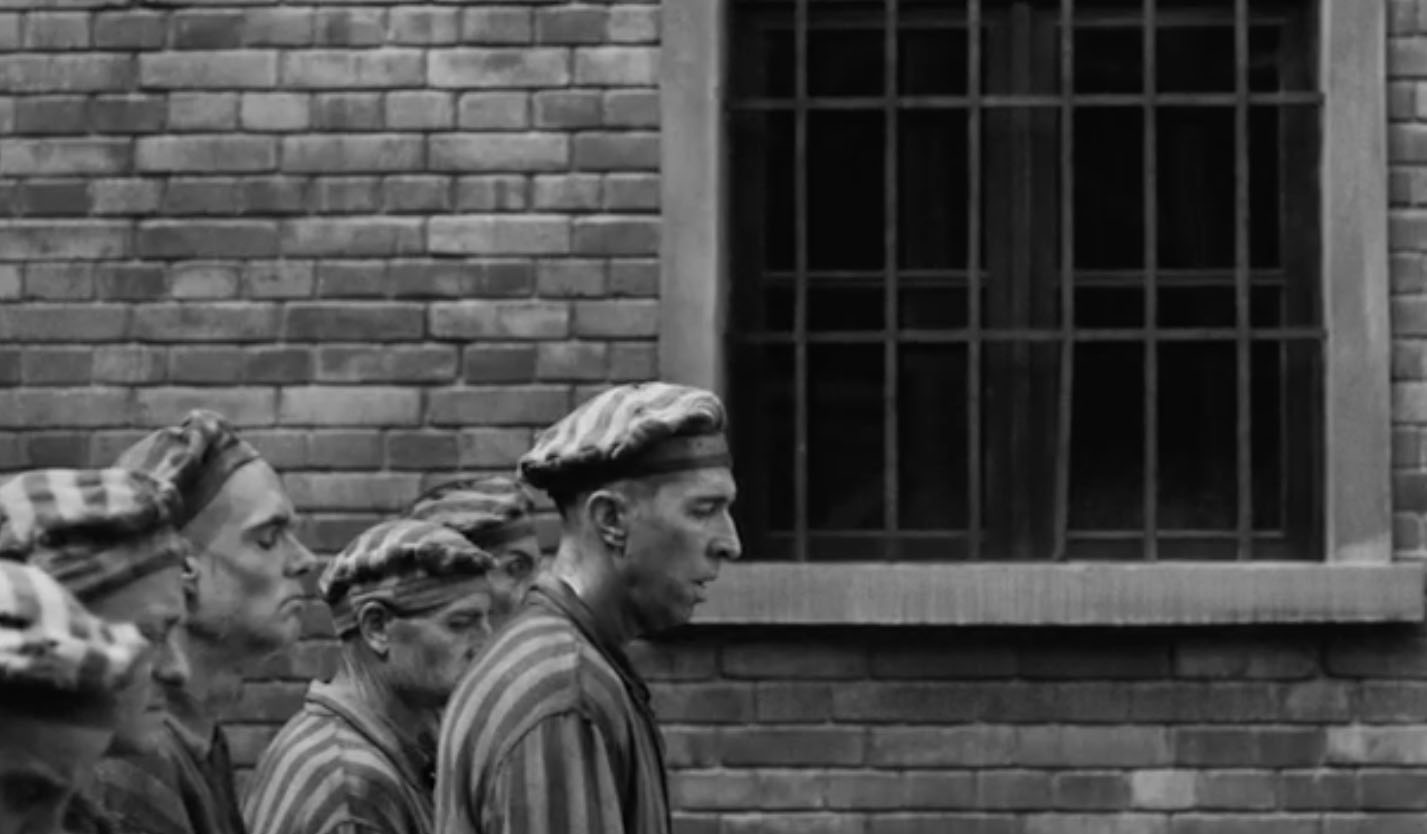
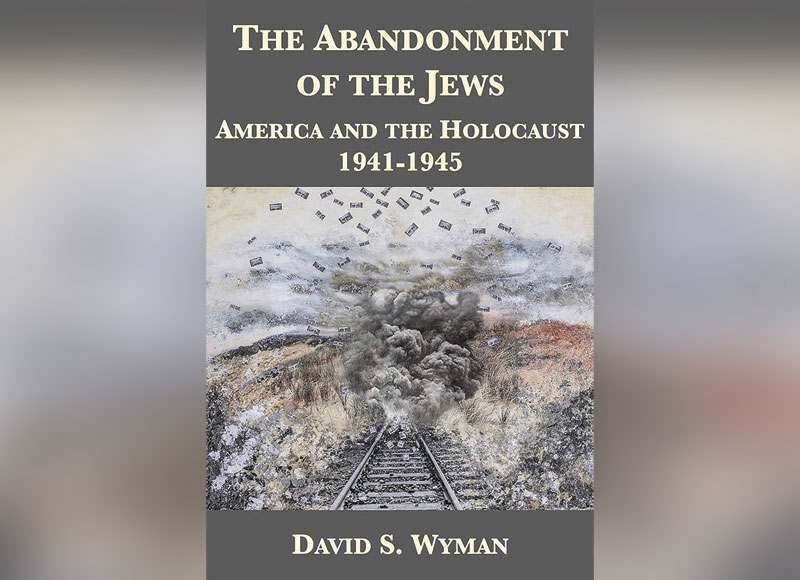

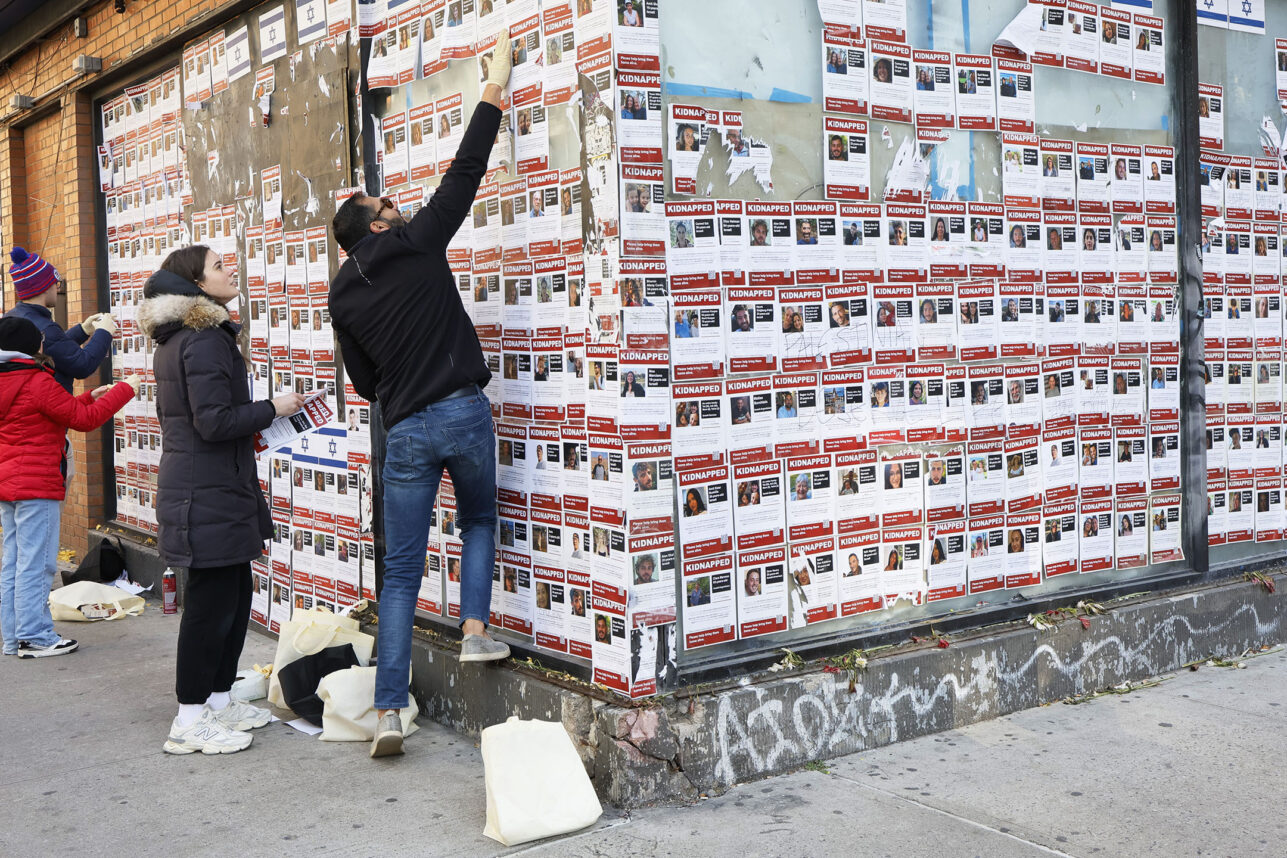

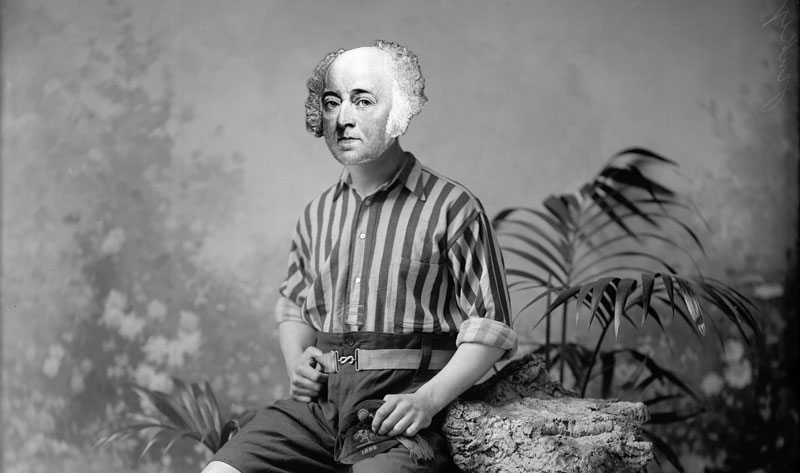






 More news and opinions than at a Shabbat dinner, right in your inbox.
More news and opinions than at a Shabbat dinner, right in your inbox.